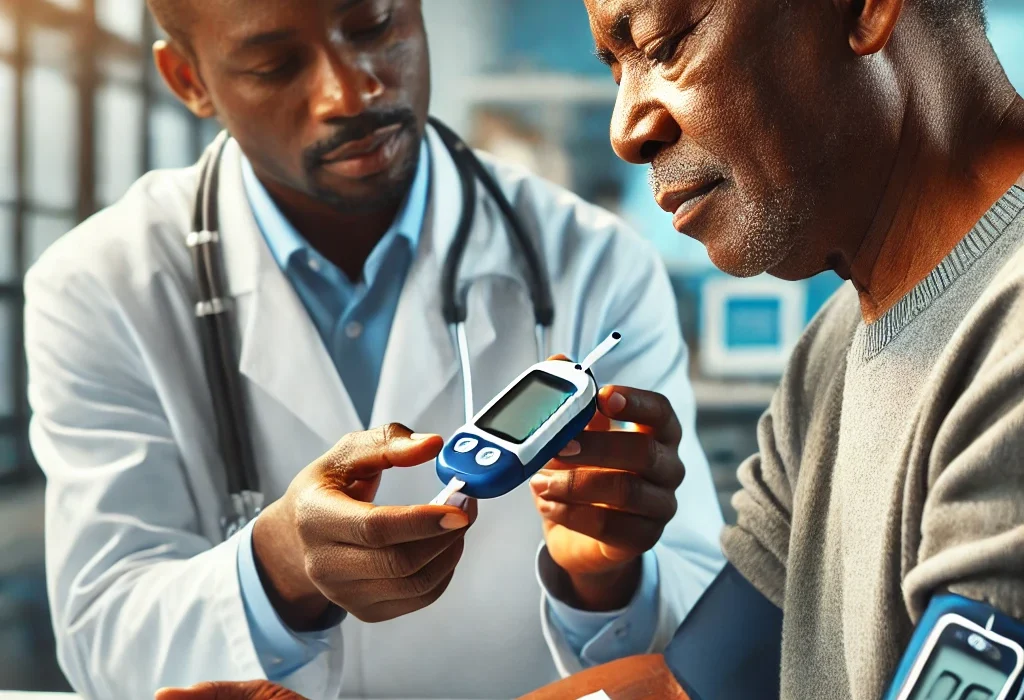Affordable Blood Sugar Monitoring: Innovations for Africa’s Diabetes Care
Revolutionizing Diabetes Management in Africa
Diabetes is a growing health crisis in Africa, with millions affected by the disease. Limited access to affordable blood sugar monitoring tools and diabetes care makes managing the condition challenging, especially in low-income and rural areas. However, innovations in affordable glucose monitoring devices, mobile health solutions, and AI-powered diagnostics are transforming diabetes care, making it more accessible and cost-effective.
The Growing Burden of Diabetes in Africa
According to the International Diabetes Federation (IDF), Africa is experiencing one of the fastest-growing rates of diabetes worldwide. Factors contributing to this rise include:
- Urbanization and lifestyle changes leading to unhealthy diets and reduced physical activity.
- Limited awareness and screening programs, resulting in late diagnoses.
- High costs of traditional glucose monitoring devices, making regular testing difficult for many.
- Limited healthcare infrastructure, especially in rural areas.
The Need for Affordable Blood Sugar Monitoring Solutions
Traditional diabetes management tools, such as finger-prick glucometers and continuous glucose monitoring (CGM) devices, remain expensive and inaccessible to many African populations. There is a pressing need for affordable, innovative solutions that cater to low-income individuals while maintaining accuracy, ease of use, and availability.
Innovative Blood Sugar Monitoring Solutions in Africa
1. Low-Cost Glucometers and Test Strips
One of the key barriers to diabetes management in Africa is the high cost of test strips. Innovative companies are now developing:
- Reusable and affordable glucometers with cost-effective test strips.
- Non-invasive glucose monitoring devices that eliminate the need for finger pricks.
- Subsidized or government-supported diabetes care programs to lower costs.
2. Mobile Health (mHealth) Solutions for Diabetes Management
With smartphone penetration increasing across Africa, mHealth applications are playing a crucial role in diabetes management. Features include:
- AI-powered symptom tracking and alerts to help users monitor their blood sugar levels.
- Telemedicine consultations with doctors and diabetes specialists.
- SMS-based reminders for medication and diet tracking in areas with limited internet access.
3. AI and IoT-Enabled Blood Sugar Monitoring Devices
The integration of artificial intelligence (AI) and the Internet of Things (IoT) is revolutionizing diabetes care in Africa:
- Wearable CGM devices that provide real-time glucose readings.
- Smart glucometers that sync data with mobile apps for continuous monitoring.
- AI-driven diagnostics that predict blood sugar trends and suggest lifestyle modifications.
4. Community-Based Diabetes Screening and Care Programs
To increase access to blood sugar monitoring, organizations and governments are launching:
- Free or low-cost screening camps in rural areas.
- Community health workers trained in diabetes education and monitoring.
- Public-private partnerships to distribute affordable monitoring kits.
5. Solar-Powered Diabetes Care Clinics
Many rural areas in Africa lack stable electricity, making blood sugar monitoring difficult. Solar-powered diabetes care units are emerging to:
- Provide continuous refrigeration for insulin storage.
- Support glucometers and other essential medical devices.
- Offer sustainable healthcare solutions in off-grid regions.
Challenges to Overcome in Expanding Diabetes Care in Africa
Despite these advancements, challenges persist:
- High import taxes and regulatory hurdles that increase the cost of medical devices.
- Limited healthcare professional training on new diabetes technologies.
- Low public awareness about diabetes symptoms and the importance of monitoring.
- Affordability concerns for rural and underserved communities.
The Future of Affordable Blood Sugar Monitoring in Africa
The future of diabetes care in Africa lies in affordable, tech-driven, and community-based solutions. As more companies invest in cost-effective innovations, partnerships between governments, private healthcare providers, and tech startups will be essential to scaling up access to life-saving diabetes monitoring tools.
With the right investments and policies, Africa can move towards universal diabetes care, ensuring that millions receive timely diagnoses and effective management solutions.



